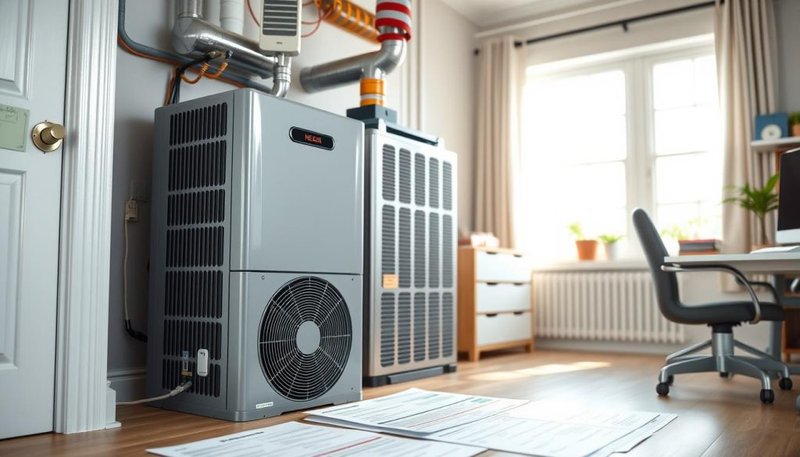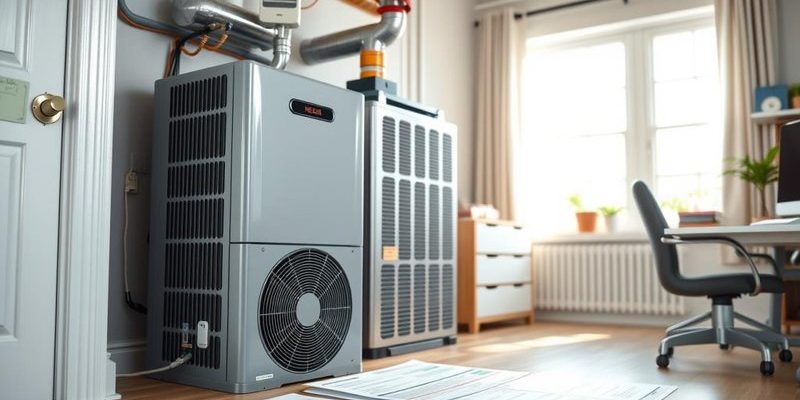
Think of online warranty registration like giving your HVAC system a digital “passport.” It’s a quick way to prove you’re the rightful owner and get the benefits if anything goes wrong down the road. But just like a passport, you want to make sure you’re handing it to a trustworthy official (in this case, York or their authorized website). So, how do you know if that official is legit? And when does convenience cross the line into risk? Let’s explore.
Why Manufacturers Use Online Warranty Registrations
You might have noticed that nearly every HVAC system, including York units, comes with a warranty card or a slip suggesting you register online. But why ask you to do this digitally instead of through mail or phone?
First, it’s **super convenient**—you type in some basic info, maybe the model number and purchase date, and click submit. No need to lick stamps or wait on hold. Plus, online forms often sync your registration with their internal records instantly, which speeds up service requests or claims later on.
Second, it helps manufacturers like York keep track of their products in real time. When you register your York HVAC system online, the company gets accurate data about where the unit is installed, who owns it, and when it was bought. This data helps with product recalls, safety alerts, or even sending you firmware updates if your system supports smart features.
Lastly, online registration reduces errors caused by manual entry or lost forms. With a digital system, your warranty info is stored securely in their database with less chance of mix-ups. It’s like having a digital receipt that’s impossible to lose.
How Safe Is Online Warranty Registration for Your York HVAC?
Honestly, most big HVAC brands like York take security seriously when it comes to your personal info. Their websites typically use **secure connections** (look for “https” and a padlock icon in your browser), which means your data is encrypted when sent.
Encryption is like putting your data in a locked mailbox that only York’s system can open. That way, hackers snooping on public networks can’t read your info mid-transit.
Furthermore, York works with authorized dealers and trusted platforms to collect warranty registrations, reducing the risk of phishing scams or fake sites. They also have privacy policies explaining how your data is used and protected.
That said, the safety also depends on *where* you register. Always use York’s official website or a dealer’s verified portal. Avoid clicking suspicious links in emails or texts claiming to register your warranty for you.
What Information Do You Need to Provide When Registering?
Here’s where some folks get cautious: “What exactly am I sharing?” It’s a fair question. Typically, the info requested on York’s online warranty registration includes:
- Personal details: name, contact info, and address
- HVAC product info: model and serial number, purchase date
- Purchase proof: sometimes a dealer invoice or receipt
Why do they need all this? Well, York uses your info to confirm ownership, validate warranty coverage, and reach you if there’s an important update or issue with your unit. It’s similar to when you sync a remote control with a device—without the right code and pairing info, things just won’t work properly.
If you feel uneasy, check their privacy policy to see if they share your data with partners or use it for marketing. Usually, reputable brands are transparent and give you options to opt out.
Common Concerns and How to Address Them
Let’s get real: people worry about online theft, spam, or even having their warranty denied because of registration mistakes. Here’s the thing—these fears are valid but mostly avoidable.
- Risk of data breaches: No system is 100% hacker-proof, but York employs strong security practices and regularly updates their backend defenses to minimize risk.
- Spam or marketing calls: If you’re worried about your info being sold, remember you can usually decline marketing communications during registration or adjust preferences later in your account settings.
- Incorrect registration: Double-check that the model and serial numbers you enter match exactly what’s on your unit. It’s like pairing a remote—it won’t sync properly if you enter the wrong code.
If you ever suspect something suspicious, contacting York customer support immediately is your best bet.
How to Safely Complete Your York HVAC Warranty Registration Online
Here’s a quick, simple rundown on registering without stress:
- Use a secure internet connection: Avoid public Wi-Fi when entering personal info. Your home network or mobile data is safer.
- Go to the official York website: Type the URL directly or use a trusted dealer link.
- Have your HVAC details handy: Keep your model and serial numbers ready to avoid errors.
- Fill out all required fields carefully: Take your time to avoid typos.
- Read privacy policies: Understand how your data will be used.
- Save confirmation: Take a screenshot or print the confirmation page after submission.
- Keep your receipt: A digital or physical copy is handy for future reference.
Following these steps keeps things smooth and secure, letting you focus on other things—like figuring out the best remote sync or troubleshooting a rare system hiccup.
What If You Prefer Not To Register Online?
Some people just don’t like doing anything warranty-related on the internet—and that’s okay. York usually offers alternative methods.
You can often register your warranty the old-fashioned way by mailing in a registration card or even calling customer service to register over the phone. These methods might feel slower or a bit tedious compared to online forms, but they’re perfectly valid and sometimes preferred if you’re wary of sharing data online.
Just make sure you keep good records of your purchase and any mailed forms, since proof of registration might be needed if you request a warranty claim.
Comparing Online Registration With Other Warranty Options
Online registration tends to be faster and more accurate than paper forms, but here’s a quick comparison table to break it down:
| Method | Speed | Security | Convenience |
|---|---|---|---|
| Online Registration | Instant | High (when done on official sites) | Very convenient, anytime, anywhere |
| Mail-in Form | Several days to weeks | Medium (risk of lost mail) | Less convenient, requires postage |
| Phone Registration | Same day or next day | High (direct contact) | Moderately convenient, requires time on call |
The online route usually wins if you’re comfortable with the tech side. Otherwise, phone or mail are solid fallback options.
Wrapping Up: Should You Trust Online Warranty Registrations for York HVAC Systems?
Here’s the bottom line: **online warranty registration for York HVAC systems is generally safe and recommended**, as long as you stick to official websites and follow basic security precautions. It’s a quick way to secure your system’s warranty, save paper, and speed up future service.
If you pause because you’re worried about privacy or mistakes, just remember that York and their dealers handle tons of registrations daily—they’ve got solid systems in place designed to protect your info. Plus, you can always check with customer service if you want reassurance or prefer to register another way.
Honestly, online registrations are kind of like syncing a remote—you want it done right, securely, and without fuss. So fire up your laptop, grab that model number, and register your York HVAC system confidently. It’s one less thing to worry about when keeping your home comfy.
